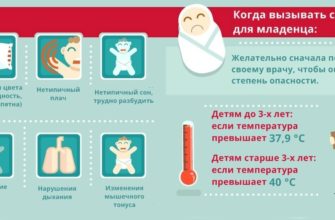For the first time, a neurologist will examine a newborn child in the hospital, then several more times during the first year during scheduled examinations of specialists. In neurology, the time of infancy is considered a period of adaptation to the environment. The correct and timely maturation of the central nervous system directly affects the formation and development of speech and physiological skills. The work of a neurologist with a child up to a year comes down to assessing the state of the central nervous system, its development and maturity, and the influence of adverse factors on it. We decided to consider a list of the most urgent questions to the neurologist from the parents of the baby.
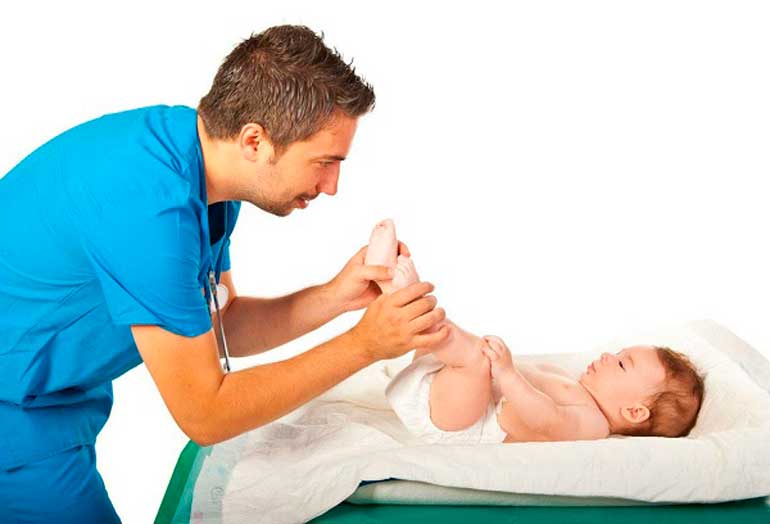
Why do I need a scheduled inspection?
Question: If the birth went well and my baby was born without pathologies, birth injuries and with a good rating on the Apgar scale, should I show the baby to a neurologist?
According to existing rules, an absolutely healthy baby needs four scheduled examinations by a neurologist in the first year of life: at 1, 3, 6, and 12 months. In babies, even those who received a good Apgar score at birth, disorders of the central nervous system (CNS) may occur during growth and development. It is important to identify them as early as possible in order to effectively help the baby.
In addition to the baby’s growth and weight standards, it is important not to miss the signs of such malformations as intracranial pressure, hypertension-hydrocephalic syndrome, an increase in the ventricles of the brain and many others. It is at the initial stage that they lend themselves to correction, which will avoid serious and even incurable diagnoses in the future.
Repeated neurological examinations are necessary even if during previous consultations no deviations in the activity of the central nervous system of the baby were detected - they may appear later.
When at 7 years old your child goes to school and already there it appears that he is “untrained”, “difficult” or “problematic”, only himself or a negligent neurologist will blame. A huge number of unpleasant syndromes and conditions in the functioning of the nervous system may not be detected visually due to the fact that 6-7 years is a rather crisis age at which neurological abnormalities that were missed at an earlier age “creep out”. Diseases of the nervous system can be successfully diagnosed and treated in the first months after childbirth. The later treatment is started, the more difficult the disease will be to correct. That is why it is so important to regularly attend scheduled examinations and take appropriate tests.
Neurological hammer
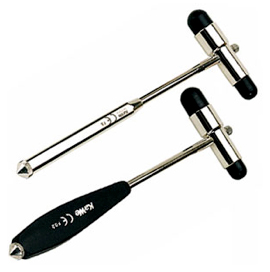
Question: Why does a neurologist use a hammer? (knocks on the knee with a hammer and leads them in front of the child’s eyes?)
An integral attribute of a neurologist is a neurological hammer, it is also a Taylor hammer, a percussion hammer (percussion is the language of medicine percussion), tomahawk, buck hammer, Tromner hammer. There are a lot of varieties of the tool, everyone chooses what is more convenient for him.
Despite the simplicity of the mechanism and the biased attitude of many patients towards it (“what can you understand by tapping the knee with a hammer?”), The neurological hammer is a serious diagnostic tool. It allows you to effectively identify all kinds of deviations in the functioning of the nervous system in the early stages: the state of the oculomotor nerves, vestibular apparatus and cerebellum of the baby, and accordingly prevent the development of serious neurological diagnoses. It is not necessary to be afraid of the tool, even despite the presence of needles on some models - they are designed to test the reflexes and sensitivity of the skin and will not hurt the child.
Baby in front of tv
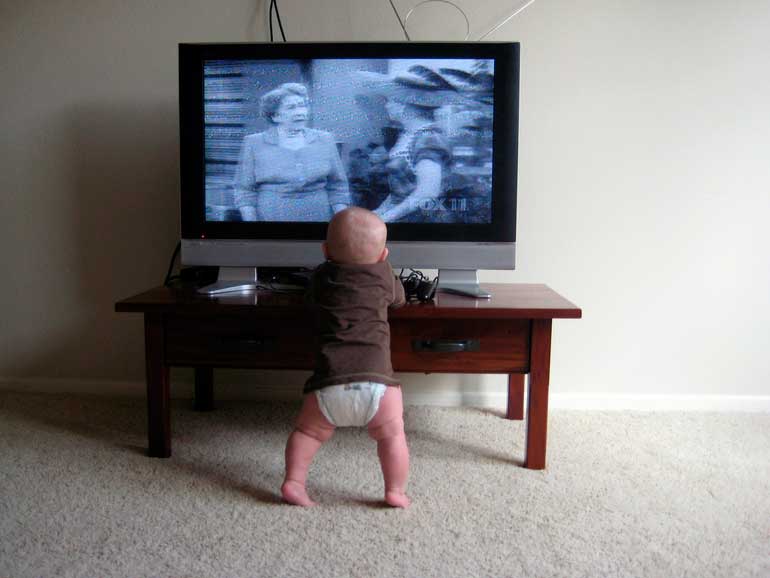
Question: Can it be dangerous for a child up to a year to watch TV? After all, it is not necessary to watch zombie programs or cartoons that cause aggression, there are a lot of interesting cartoons for children, developing programs for the smallest.
Doctors say that you can start watching TV from the age of not earlier than two years.
- You can watch TV from two years old for no more than 5-8 minutes.
- In three years, you can increase viewing to 25 minutes.
- In four years, viewing will be 30 minutes.
- At five years - 35 minutes.
It is undesirable for a baby to even be in the room where the TV is working. This is too serious a burden for his fragile nervous system and eyes. Subtle flickering of the screen can cause convulsive syndrome, impaired vision and sleep. The child becomes easily excitable, moody and nervous.
An excellent alternative to harmonious intellectual development for a child up to a year will be reading books with bright and colorful pictures, classes with a designer from large parts.
We also read: Do children turn on the TV?
Peaceful sleep is the key to harmonious development

[sc name = ”rsa”]
Question: One question is not limited to this. The most frequent: Why can't a child fall asleep for a long time? Why does a child always cry before falling asleep? Why is the child extremely excited at bedtime and cannot be laid for a long time? The child suddenly began to cry and scream at night. How to establish a baby’s sleep without drugs?
Sleep for a child up to a year is not just a vacation, it includes a huge number of functions:
- Relaxation of the body and restoration of spent energy;
- Maintaining an excellent level of the immune system;
- Growth hormone production;
- Processing and systematization by the brain of data collected during the wakeful period;
- Stimulation of the brain area responsible for the development of thinking and memory.
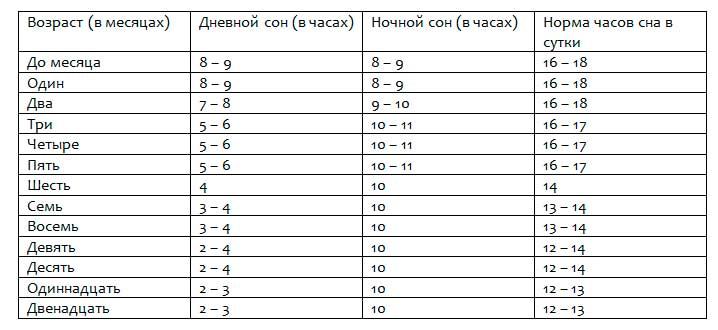
In order to establish a sleep regimen without medication, to avoid crying and screaming in a dream, the vagaries and overexcited state of an infant before bedtime, several simple rules should be observed:
- Strictly and scrupulously follow the sleep and wakefulness regime, not allowing current affairs and events of the day to disrupt it. Spend more time with your child in the air;
- Establish a specific ritual of going to bed, both day and night. Always stick with it. This may include soothing herbal bath (consult with a neurologist beforehand), reading a book, calm games, storytelling, lullabies;
- Do not be late for feeding and sleeping;
- Put a pillow with mint or lavender at the head of the baby. It is also useful to give the baby a baby tea from these herbs - but only after he turns six months old;
- Learn signs of baby fatigue. If they are present, it is better to put the baby a little earlier, otherwise he may become overexcited and fall asleep later than expected.Signs of overwork include friction of the forehead or eyes, the appearance of small circles beneath them, blurred eyes, sleepy eyes, tugging of ears. For each child, they are individual;
- Explain and show the child the differences between day and night. Explain when you put the baby in bed, that other people and animals also go to bed, they need to gain strength before the new day, why the sun does not shine at night, etc. At a later time, do not play with the child, reduce the noise and light in the rooms so that the child understands that it is time for sleep.
We read in more detail:Why does a child sleep poorly at night: how to establish a child’s sleep?
Do not forget that a child at any age, and especially up to a year, is unusually sensitive to the atmosphere in the family, so it is very important to exclude any stress for the baby, manifestations of unbalanced emotions and especially aggression in his presence.
We also read: Going to the pediatrician: 7 important rules
Reception at the children's neurologist. Mom's school




